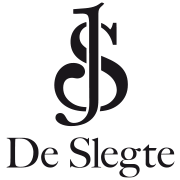John Casti 63574 - Would-Be Worlds
| Schrijver: | John Casti 63574 |
|---|---|
| Titel: | Would-Be Worlds |
| ISBN: | 9780471123088 |
| Uitgever: | Wiley |
| Bijzonderheden: | Redelijk, 1997, Gekartonneerd met stofomslag, 242p |
| Prijs: | € 12,50 |
| Verzendkosten: | € 4,50 (binnen Nederland) |
| Meer info: |
Critical acclaim for John Casti's previous book \"Five Golden Rules is caviar for the inquiring reader. Anyone who enjoyed solving math problems in high school will be able to follow the author's explanations, even if high school was a long time ago. There is joy here in watching the unfolding of these intricate and beautiful techniques. Casti's gift is to be able to let the nonmathematical reader share in his understanding of the beauty of a good theory.\"—Christian Science Monitor \"[Five Golden Rules] ranges into exotic fields such as game theory (which played a role in the Cuban Missile Crisis) and topology (which explains how to turn a doughnut into a coffee cup, or vice versa). If you'd like to have fun while giving your brain a first-class workout, then check this book out.\"—San Francisco Examiner \"Unlike many popularizations, [this book] is more than a tour d'horizon: it has the power to change the way you think. Merely knowing about the existence of some of these golden rules may spark new, interesting—maybe even revolutionary—ideas in your mind. And what more could you ask from a book?\"—New Scientist \"This book has meat! It is solid fare, food for thought . . . makes math less forbidding, and much more interesting.\"—Ben Bova, The Hartford Courant \"This book turns math into beauty.\"—Colorado Daily \"John Casti is one of the great science writers of the 1990s.\"—San Francisco Examiner In the ever-changing world of science, new instruments often lead to momentous discoveries that dramatically transform our understanding. Today, with the aid of a bold new instrument, scientists are embarking on a scientific revolution as profound as that inspired by Galileo's telescope. Out of the bits and bytes of computer memory, researchers are fashioning silicon surrogates of the real world—elaborate \"artificial worlds\"—that allow them to perform experiments that are too impractical, too costly, or, in some cases, too dangerous to do \"in the flesh.\" From simulated tests of new drugs to models of the birth of planetary systems and galaxies to computerized petri dishes growing digital life forms, these laboratories of the future are the essential tools of a controversial new scientific method. This new method is founded not on direct observation and experiment but on the mapping of the universe from real space into cyberspace. There is a whole new science happening here—the science of simulation. The most exciting territory being mapped by artificial worlds is the exotic new frontier of \"complex, adaptive systems.\" These systems involve living \"agents\" that continuously change their behavior in ways that make prediction and measurement by the old rules of science impossible—from environmental ecosystems to the system of a marketplace economy. Their exploration represents the horizon for discovery in the twenty-first century, and simulated worlds are charting the course. In Would-Be Worlds, acclaimed author John Casti takes readers on a fascinating excursion through a number of remarkable silicon microworlds and shows us how they are being used to formulate important new theories and to solve a host of practical problems. We visit Tierra, a \"computerized terrarium\" in which artificial life forms known as biomorphs grow and mutate, revealing new insights into natural selection and evolution. We play a game of Balance of Power, a simulation of the complex forces shaping geopolitics. And we take a drive through TRANSIMS, a model of the city of Albuquerque, New Mexico, to discover the root causes of events like traffic jams and accidents. Along the way, Casti probes the answers to a host of profound questions these \"would-be worlds\" raise about the new science of simulation. If we can create worlds inside our computers at will, how real can we say they are? Will they unlock the most intractable secrets of our universe? Or will they reveal instead only the laws of an alternate reality? How \"real\" do these models need to be? And how real can they be? The answers to these questions are likely to change the face of scientific research forever.
|

De verkoper zal binnen 3 werkdagen contact met u opnemen om de koop verder af te handelen.
